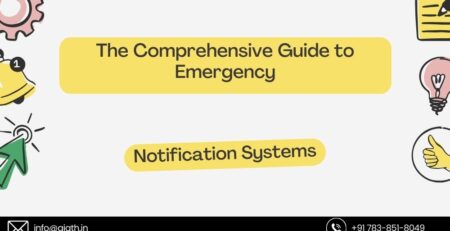Choosing the Right Mobile App Development Company: Factors to Consider
Choosing the Right Mobile App Development Company: Factors to Consider
Introduction:
Choosing the right mobile app development company is a critical decision for businesses aiming to establish a strong digital presence or enhance their existing one. In today's highly competitive market, where mobile apps serve as vital touchpoints between businesses and their customers, selecting the right development partner can significantly impact the success of your project. Here are several factors to consider when evaluating mobile app development companies:
1. Expertise and Experience: Look for companies with a proven track record of delivering high-quality mobile apps across various industries. Evaluate their portfolio to gauge their expertise in building apps similar to what you envision. Consider the complexity of the projects they've handled and whether they've worked with businesses of your size and domain.
2. Technical Proficiency: Assess the company's technical capabilities and the proficiency of their development team. Verify their experience with relevant programming languages, frameworks, and technologies, such as Swift, Kotlin, React Native, or Flutter. A skilled team well-versed in the latest tools and methodologies can ensure efficient development and timely delivery of your app.
3. Design Capabilities: User experience (UX) and user interface (UI) design play pivotal roles in the success of a mobile app. Choose a company with a strong design team capable of creating intuitive, visually appealing interfaces that resonate with your target audience. Look for evidence of their design prowess in their previous work, considering factors like usability, aesthetics, and consistency.
4. Client References and Reviews: Seek recommendations from past clients or references provided by the development company. Additionally, scour online reviews and ratings on platforms like Clutch, GoodFirms, or Google My Business. Real feedback from previous clients can offer valuable insights into the company's reliability, communication, and overall satisfaction with their services.
5. Collaboration and Communication: A successful development collaboration depends on effective communication. Assess the company's lines of communication, responsiveness, and desire to work closely with your team during the course of the project. Alignment on project goals, schedules, and potential obstacles is ensured via open and honest communication..
6. Quality Assurance and Testing Practices: Ensure that the company follows robust quality assurance processes and rigorous testing methodologies to identify and rectify bugs and issues early in the development cycle. A comprehensive testing strategy, including functional, performance, and security testing, is crucial for delivering a stable and reliable app to end-users.
7. Scalability and Support: Consider the company's ability to scale resources and support your app's growth post-launch. Ensure they offer ongoing maintenance, updates, and technical support to address any issues and keep your app aligned with evolving market trends and user expectations.
8. Cost and Budget: While cost is a significant factor, it should not be the sole determinant in your decision-making process. Evaluate the company's pricing structure, ensuring it aligns with your budget and the value they offer. Beware of excessively low quotes, as they may indicate compromising on quality or lacking transparency in pricing.
9. Intellectual Property Rights: Clarify ownership rights and intellectual property (IP) issues upfront to avoid any disputes later on. Ensure that the development company adheres to clear contractual agreements regarding ownership of code, design assets, and any proprietary technologies or functionalities developed during the project.
10. Cultural Fit and Company Values: Lastly, assess the cultural fit between your organization and the development company. Shared values, work ethic, and a collaborative mindset can foster a productive and harmonious working relationship, ultimately contributing to the success of your project.
Advantages of Choosing the Right Mobile App Development Company:
1. Expertise and Specialization: A reputable mobile app development company brings extensive expertise and specialization in building mobile apps across different platforms and industries. Their experience enables them to understand your unique requirements and deliver tailored solutions that meet your business objectives effectively.
2. Access to Skilled Talent: Partnering with a professional development company gives you access to a team of skilled professionals, including developers, designers, testers, and project managers. These experts bring diverse skill sets and perspectives to the table, ensuring comprehensive coverage of all aspects of app development.
3. Efficient Resource Utilization: By outsourcing mobile app development to a specialized company, you can optimize resource utilization within your organization. Instead of investing in hiring and training an in-house team, you can leverage the expertise of external professionals who are already equipped with the necessary skills and tools.
4. Faster Time to Market: Mobile app development companies follow established processes and workflows, enabling them to expedite the development process and deliver your app to market quickly. Their streamlined approach, coupled with efficient project management, reduces time-to-market and allows you to capitalize on market opportunities promptly.
5. Quality Assurance and Testing: Professional development companies adhere to stringent quality assurance standards and employ comprehensive testing methodologies to ensure the reliability, performance, and security of your app. Rigorous testing helps identify and rectify any issues early in the development cycle, minimizing the risk of post-launch glitches and enhancing user satisfaction.
6. Scalability and Flexibility: A reputable development company can scale resources and adapt to evolving project requirements as your business grows. Whether you need to add new features, support additional platforms, or accommodate increased user traffic, they can adjust their team and processes accordingly to meet your evolving needs.
7. Continuous Support and Maintenance: Beyond the initial development phase, a reliable development company offers ongoing support and maintenance services to keep your app running smoothly. They provide timely updates, address any technical issues, and ensure compatibility with new OS versions and devices, thereby enhancing user experience and retention.
8. Risk Mitigation: Partnering with an experienced development company mitigates the inherent risks associated with mobile app development. Their proven track record, adherence to industry best practices, and focus on quality assurance reduce the likelihood of project delays, budget overruns, or technical failures, providing you with greater peace of mind.
9. Innovative Solutions and Technologies: Development companies stay abreast of the latest trends, technologies, and best practices in the mobile app industry. By leveraging their expertise, you can incorporate innovative features, adopt emerging technologies, and stay ahead of competitors, thereby enhancing your app's competitiveness and user appeal.
10. Strategic Partnership: Building a long-term partnership with a trusted development company fosters collaboration, innovation, and mutual growth. They become invested in your success, offering strategic guidance, insights, and support to help you achieve your business objectives and stay ahead in the dynamic mobile landscape.
Disadvantages of Choosing the Wrong Mobile App Development Company:
1. Poor Quality and Performance: Selecting an incompetent or inexperienced development company can result in subpar quality and performance of your mobile app. Lack of expertise, inadequate testing, and sloppy development practices may lead to frequent crashes, sluggish performance, and negative user feedback, ultimately tarnishing your brand reputation.
2. Missed Deadlines and Delays: Inefficient project management and lack of accountability may cause delays in project delivery and missed deadlines. Poor communication, scope creep, and inadequate resource allocation can derail the development process, resulting in frustration, additional costs, and lost opportunities in the market.
3. Increased Costs and Budget Overruns: Choosing the wrong development company may lead to budget overruns and increased costs due to rework, inefficiencies, and unexpected issues. Hidden fees, ambiguous pricing structures, and lack of transparency in billing practices can strain your financial resources and undermine the profitability of your app venture.
4. Lack of Communication and Collaboration: Poor communication and collaboration with the development company can hinder the success of your project. Misaligned expectations, vague requirements, and inadequate feedback loops may lead to misunderstandings, rework, and deviations from the intended vision, impeding progress and delaying project milestones.
5. Security and Compliance Risks: Entrusting sensitive data and confidential information to an unreliable development company poses security and compliance risks. Inadequate security measures, lax data protection practices, and non-compliance with regulatory requirements may expose your app to data breaches, legal liabilities, and reputational damage, undermining user trust and loyalty.
6. Limited Scalability and Support: A subpar development company may lack the scalability and resources to support your app's growth and evolving needs. Inadequate post-launch support, slow response times, and insufficient maintenance services can hinder your ability to address user feedback, implement updates, and stay competitive in the market.
7. Incompatibility and Technical Debt: Poorly developed apps may suffer from compatibility issues, technical debt, and architectural flaws that impede future enhancements and scalability. Legacy code, bloated frameworks, and lack of documentation can make it challenging to maintain, extend, or integrate new features, hampering your app's long-term viability and competitiveness.
8. Limited Innovation and Competitive Advantage: Choosing a development company with limited expertise and innovation stifles your app's potential for differentiation and competitive advantage. Lack of creative insights, outdated technologies, and cookie-cutter solutions may result in a generic, uninspiring app that fails to captivate users or stand out in a crowded marketplace.
9. Legal and Intellectual Property Disputes: Inadequate contractual agreements and ambiguous ownership rights may lead to legal disputes over intellectual property and proprietary assets. Failure to clarify ownership of code, design elements, and third-party components upfront can result in costly litigation, loss of control over your app, and damage to your brand's reputation.
10. Poor Customer Experience and Retention: Ultimately, choosing the wrong development company can result in a poor customer experience and low user retention rates. Buggy, poorly designed apps with limited functionality and usability fail to engage users effectively, leading to negative reviews, uninstallations, and loss of revenue opportunities, undermining the success and viability of your app venture.
Problems or errors, along with potential solutions:
1. Lack of Clarity in Requirements: Problem: Unclear or ambiguous project requirements can lead to misunderstandings, scope creep, and dissatisfaction with the final product.
Solution: Invest time upfront to define clear, detailed project requirements through thorough documentation, stakeholder meetings, and prototyping. Engage in active communication with the development company to ensure mutual understanding and alignment on project objectives and deliverables.
2. Difficulty in Evaluating Expertise: Problem: It can be challenging to accurately assess the expertise and capabilities of development companies, especially for non-technical stakeholders.
Solution: Conduct in-depth research and due diligence to evaluate the company's portfolio, client testimonials, case studies, and industry certifications. Request to see examples of similar projects they've completed and ask specific questions about their development process, technology stack, and approach to problem-solving.
3. Communication Barriers: Problem: Communication barriers, including language differences, time zone disparities, and cultural differences, can hinder effective collaboration and project management.
Solution: Establish clear communication channels and protocols from the outset, including regular status updates, milestone reviews, and scheduled meetings. Use project management tools and collaboration platforms to facilitate real-time communication and document sharing. Consider leveraging translation services or hiring a project manager who can bridge cultural and linguistic gaps.
4. Budgetary Constraints: Problem: Limited budget or unforeseen costs can pose challenges in selecting the right development company and executing the project within financial constraints.
Solution: Define a realistic budget based on project requirements, market rates, and expected ROI. Request detailed cost estimates from multiple development companies and compare them based on scope, quality, and value proposition. Prioritize essential features and functionalities to stay within budget while still achieving your core objectives.
5. Vendor Lock-In: Problem: Dependence on a single development company may lead to vendor lock-in, making it difficult to switch providers or scale resources as needed.
Solution: Seek flexibility in contractual agreements and ownership rights to retain control over your app's codebase and intellectual property. Consider modular development approaches and open-source technologies to minimize dependencies and facilitate future collaboration with multiple vendors or in-house teams.
6. Overemphasis on Cost: Problem: Overemphasis on cost-saving measures may result in compromises on quality, reliability, and long-term sustainability.
Solution: Focus on value rather than solely on cost when selecting a development company. Consider the total cost of ownership, including factors like quality assurance, maintenance, and ongoing support. Prioritize companies that offer competitive pricing while demonstrating a commitment to delivering high-quality, scalable solutions.
7. Mismatched Expectations: Problem: Misaligned expectations between the client and development company regarding project scope, timeline, or deliverables can lead to frustration and dissatisfaction.
Solution: Establish clear communication channels and set realistic expectations from the outset. Define project milestones, timelines, and acceptance criteria in writing to ensure mutual understanding and agreement. Regularly review progress against predefined metrics and adjust expectations as needed based on evolving project requirements and constraints.
8. Insufficient Legal Protections: Problem: Inadequate legal protections and contractual agreements may leave both parties vulnerable to disputes over ownership rights, intellectual property, and liability.
Solution: Consult with legal professionals to draft comprehensive contracts that address key legal considerations, including intellectual property rights, confidentiality, indemnification, and dispute resolution mechanisms. Clearly define roles, responsibilities, and expectations for both parties to minimize the risk of legal conflicts and ensure a transparent, mutually beneficial partnership.
Its impact on India
1. Economic Growth: India's IT sector is a significant contributor to the country's GDP and employment. Choosing the right mobile app development company fosters innovation and entrepreneurship, driving economic growth by creating job opportunities, attracting investments, and generating revenue through exports of digital products and services.
2. Global Competitiveness: India's reputation as a global IT hub depends on the quality and reliability of its software solutions. By partnering with reputable development companies, Indian businesses can deliver world-class mobile apps that compete on a global scale, enhancing the country's reputation for technological excellence and attracting international clients and investors.
3. Skill Development: Collaboration with established development companies provides Indian developers with exposure to advanced technologies, best practices, and industry standards. This exposure enhances their skill sets, accelerates their professional growth, and positions them as competitive assets in the global tech marketplace.
4. Innovation Ecosystem: The right development partnerships foster a culture of innovation and collaboration within India's tech ecosystem. By working with cutting-edge technologies, experimenting with novel ideas, and embracing iterative development methodologies, Indian companies can drive innovation, solve complex challenges, and push the boundaries of what's possible in mobile app development.
5. Entrepreneurial Ecosystem: India's startup ecosystem benefits from access to experienced mobile app development companies that offer mentorship, guidance, and technical expertise. By partnering with these companies, startups can accelerate their product development, gain market traction faster, and attract funding and support from investors and accelerators.
6. Digital Transformation: Mobile apps play a pivotal role in India's ongoing digital transformation across various sectors, including healthcare, education, finance, and e-commerce. Choosing the right development partners enables businesses to leverage technology effectively, streamline operations, enhance customer experiences, and drive widespread adoption of digital services and solutions.
7. Social Impact: Mobile apps developed by Indian companies can address pressing social challenges and improve the lives of millions of people. Whether it's healthcare apps providing access to telemedicine in rural areas, educational apps delivering quality learning resources to underserved communities, or fintech apps promoting financial inclusion, the impact of these solutions extends far beyond commercial success.
8. Brand India: Successful collaborations between Indian businesses and reputable development companies enhance India's brand image as a hub of innovation, technology, and entrepreneurship. By delivering high-quality mobile apps that resonate with global audiences, Indian companies showcase the country's capabilities and reinforce its position as a leader in the digital age.
Conclusion:
The process of selecting the right mobile app development company is not merely a decision confined to individual businesses; rather, it holds profound implications for India's economy, innovation ecosystem, and global standing in the technology sector. As a country renowned for its robust IT industry and entrepreneurial spirit, India stands at the forefront of digital transformation, poised to capitalize on the opportunities presented by mobile app development. By forging strategic partnerships with reputable development companies, Indian businesses can harness the collective expertise, resources, and innovation capabilities necessary to drive economic growth, foster technological advancement, and propel the nation towards greater global competitiveness. These partnerships not only fuel the expansion of India's IT sector but also serve as catalysts for skill development, entrepreneurship, and social impact initiatives. Through collaborative efforts, Indian developers gain exposure to cutting-edge technologies, startups gain access to mentorship and support, and society benefits from the proliferation of innovative solutions addressing pressing social challenges. Moreover, successful collaborations between Indian businesses and development companies elevate India's brand image on the global stage, reaffirming its position as a hub of innovation, talent, and opportunity in the digital age. In essence, the impact of choosing the right mobile app development company extends far beyond individual projects—it shapes the trajectory of India's technological evolution, underscores its potential for leadership in the global tech landscape, and underscores its commitment to driving positive change through innovation and entrepreneurship.













Leave a Reply